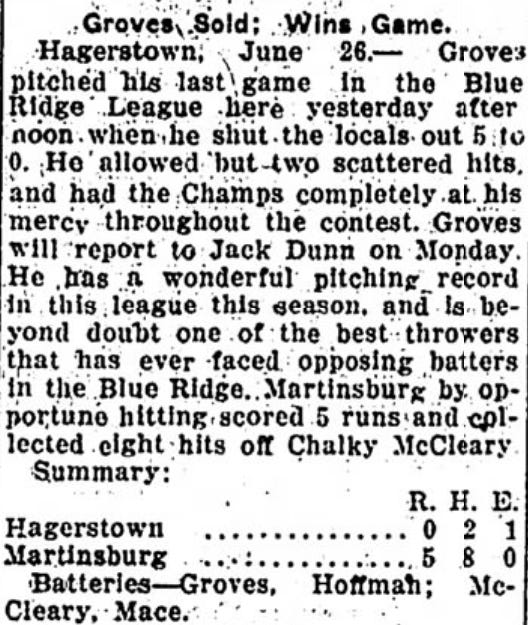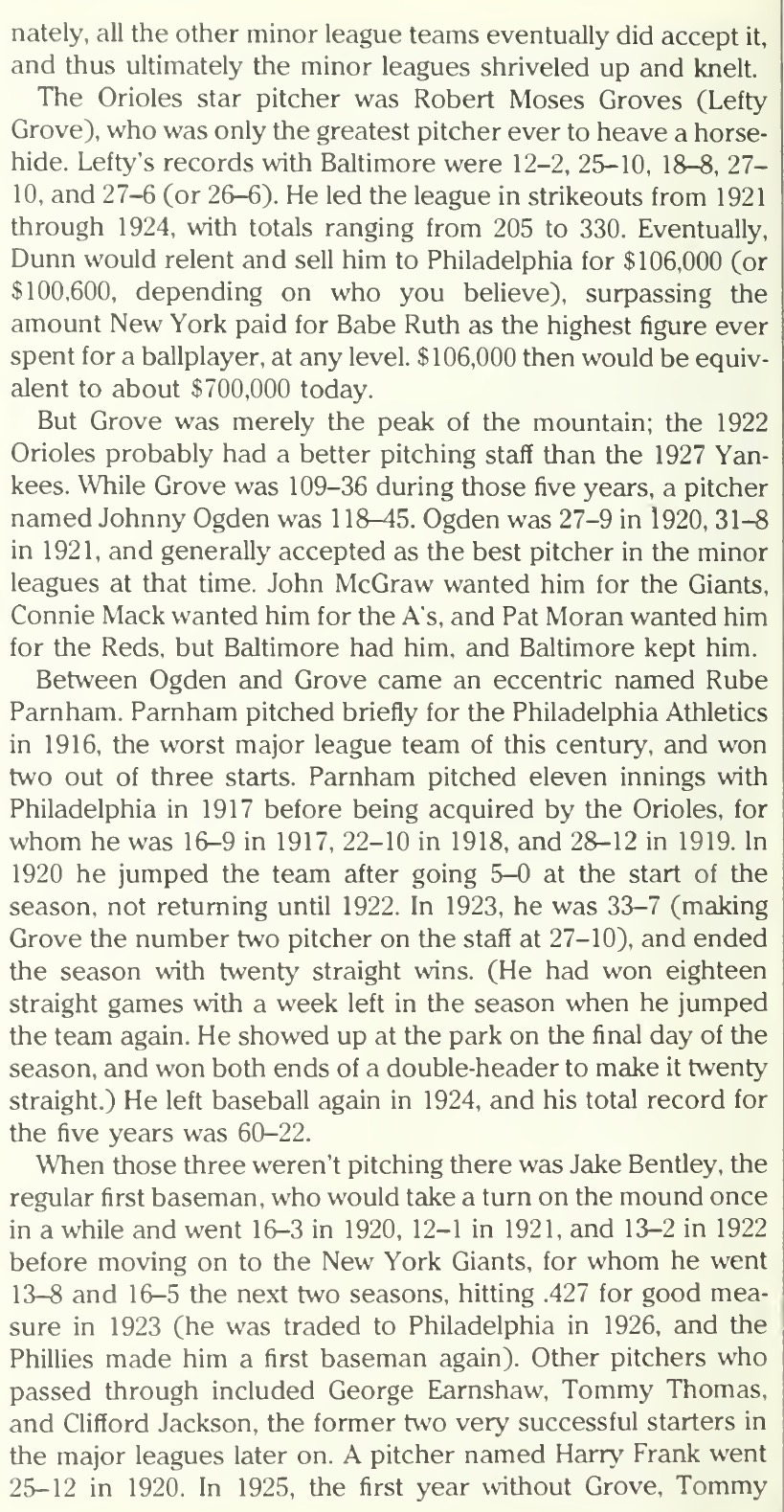The Forgotten Years
Legends and rumors are born easily, and die hard.
While searching through the early years of Lefty Grove for my latest video (see above), I came across a few tidbits that weren’t exactly true. I also caught a glimpse of what the game — and America — was once like.
Here are a few scattered notes on the subject.
Traded For A Fence?
If you read Lefty Grove’s SABR biography, you’ll come across these paragraphs:
I wanted to validate this stuff. I did my best.
I came across two early articles in the Martinsburg Evening Journal from March 1920 about Grove:
Unfortunately, newspapers.com doesn’t have coverage of that newspaper after April 30, 1920. The season appears to have started in early or mid May.
Now, this stuff in that biography about Martinsburg not playing any home games is complete rubbish. It’s wrong. See this article, for example:
As you can clearly see, Martinsburg was playing home games in early June. I suppose the team might not have had a fence at the time — but they were certainly playing at home.
The season had just started, by the way. This is from the same page of the same newspaper:
Snatched Up Quickly
If you read that biography, you’d think that Grove was well into his rookie year when Jack Dunn bought him.
That’s sort of true, but not completely.
The first mention of a sale came on June 23:
This is timely, of course. The Orioles were in need of a pitcher:
If it’s true that Grove (whose name was consistently spelled “Groves” in his Baltimore days) was purchased on June 22, he certainly wasn’t very far into his season. Here were the standings after the end of play on June 22:
We know that Grove pitched with Martinsburg once more, on June 25, before reporting to Baltimore. I was sadly unable to locate a boxscore, but did find this:
And, yeah, people knew he was something special way back then.
Instant Star
The Orioles were already the best team in the minor leagues when Grove arrived. And he still became an instant star.
And, if you’re curious, here’s the boxscore from his first International League game, on July 1, 1920:
Grove walked 3 but struck out 4, and was good enough to secure the Orioles the win in the second game of a doubleheader.
Wilhelm, by the way, was Irvin Wilhelm, otherwise known as Kaiser — one of the Brooklyn pitchers in my 1908 project. That gives you an idea of the sort of competition Grove was up against in the International League.
The Sale
Grove was brilliant.
However, the International League was independent back in the early 1920s. And Jack Dunn was fiercely independent, refusing to sell his players until he was finally forced into it.
Grove’s official biography sidesteps the issue:
You’d think that Dunn deliberately waited to sell his star pitcher to the highest possible bidder. And it was a high amount — the highest in baseball history, which really should be mentioned here. Grove sold for more than Babe Ruth, who, incidentally, was another Dunn find.
Fortunately, Bill James provides us with a much more accurate account. This is from the original Historical Baseball Abstract:
The key here is at the end. Dunn faced the possibility of having his players taken from under his wings by the minor league draft for a paltry $5,000 — part of the colonial policy by the big leagues that has damaged minor league baseball to this day. That’s why he sold.
And it was a huge deal at the time.
The first rumor of a sale came on October 10, 1924:
The news came just a few days later:
You read correctly (though it’s a bit smudged). Grove struck out 80 in 1920, 234 in 1921, 203 in 1922, 330 in 1923, and 227 in 1924. And he did so playing for a great team in an independent league, a league filled with past and future major league stars.
He had wiped out the Philadelphia Athletics in an exhibition game just a month earlier:
I know that we tend to discount exhibition games, and I know that the 1924 Athletics weren’t exactly a great team. But this is still impressive.
Personally, I think we should consider the Baltimore Orioles from this period as a major league team. But that’s another topic for another day.



























